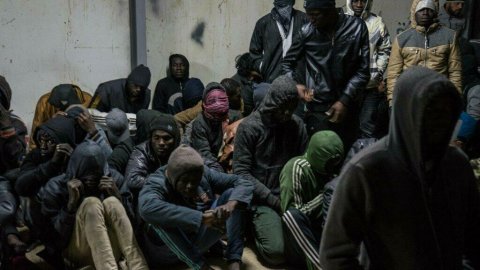Understanding the Systematic Torture Claims on the Mediterranean Migration Route
The Mediterranean migration route has become a focal point for humanitarian crises, with increasing reports of systematic torture faced by migrants. According to recent claims made by Médecins Sans Frontières (MSF), many individuals attempting to cross this perilous sea are subjected to inhumane treatment at the hands of authorities. This blog post delves into the details of these claims, explores the implications for immigration policies, and discusses the broader context of migration issues in Europe and beyond.
The Context of Mediterranean Migration
In recent years, the Mediterranean Sea has been a significant route for migrants fleeing conflict, persecution, and dire economic circumstances in their home countries. Many are seeking safety and opportunities in Europe, yet they often face numerous challenges along the way. The journey is fraught with danger, as well as encounters with border patrols and law enforcement agencies that have been accused of employing brutal tactics.
Key factors contributing to the current situation include:
MSF’s Allegations of Torture
MSF’s recent report outlines harrowing accounts from migrants who have endured torture during their attempts to cross the Mediterranean. These allegations paint a disturbing picture of systematic abuse, which includes physical violence, psychological torment, and sexual abuse. The organization highlights that these acts are not isolated incidents but rather part of a broader pattern of mistreatment.
Specific claims made by MSF include:
The implications of such claims are profound, as they call into question the integrity of migration management practices in Europe and the obligations of states under international law.
Impact on Immigration Policy and Human Rights
The reports of systematic torture raise urgent questions about the treatment of migrants and the responsibilities of governments. As countries grapple with the complexities of immigration reform, it is crucial that policies prioritize human rights and the dignity of individuals.
Considerations for policymakers include:
Addressing these issues is vital not only for the well-being of migrants but also for maintaining the moral and ethical standards of the nations involved.
The Role of Humanitarian Organizations
Organizations like MSF play a critical role in documenting abuses and advocating for the rights of migrants. Their reports provide essential insights into the realities faced by those on the move and serve as a catalyst for change in immigration policies.
Humanitarian organizations can contribute by:
The work of these organizations is crucial in ensuring that migrants are treated with the respect and dignity they deserve.
Conclusion: A Call for Action
The allegations of systematic torture along the Mediterranean migration route demand immediate attention and action. As the world watches the ongoing humanitarian crisis, it is essential for governments, organizations, and individuals to come together to address the root causes of migration, uphold human rights, and ensure that no one is subjected to torture or inhumane treatment.
By fostering a culture of empathy, understanding, and proactive policy changes, we can begin to make meaningful progress in addressing the challenges faced by migrants and ultimately create a safer and more just world for all.










